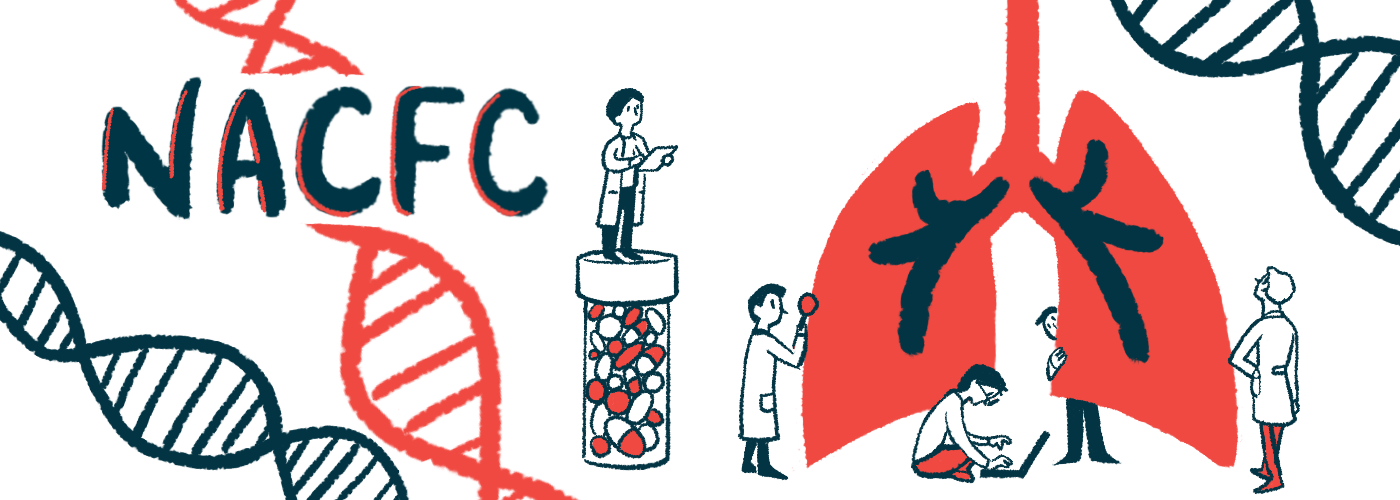#NACFC2021 – Trikafta Increases Risk of Obesity-related Health Problems
Written by |

People with cystic fibrosis (CF) who start on the triple therapy Trikafta may be at greater risk of problems associated with excessive weight or obesity, such as metabolic syndrome — a group of disorders known to raise a risk of heart, liver, and kidney disease.
“With the approval of triple therapy … weight gain and obesity will likely become more apparent, and therefore adverse syndromes associated with that such as metabolic syndrome may also arise,” said Gregory Ratti, MD, an assistant professor at University of Texas Southwestern. “We need to recognize these early to prevent long-term complications as life expectancy improves for our patients.”
Ratti spoke at the 2021 North American Cystic Fibrosis Conference (NACFC) in the presentation, “Development of metabolic syndrome in a single center cohort after initiation of elexacaftor-tezacaftor-ivacaftor.”
Trikafta, by Vertex Pharmaceuticals, is a triple-combination CFTR modulator therapy. It works by improving the functionality of the CFTR protein in people with specific CF-causing mutations.
Data suggest that treatment with Trikafta can help CF patients gain weight. Since CF frequently leads to malnutrition, this is generally viewed as beneficial — but putting on weight also carries risk.
Based on a 2019 report from the CF Foundation, about 23.1% of the CF population was overweight, and another 8.3% were obese. By comparison, 12.8% of CF patients were overweight or obese in 1999.
“Obesity is becoming a much more relevant problem in our CF population,” Ratti said. “Therefore, we need to look into the complications that are related to this disorder.”
Among those complications is hypertension or high blood pressure, “which we have traditionally not thought to be a problem” in CF, Ratti said. However, that same 2019 report found that 6.4% of adults with CF have high blood pressure — a similar rate to the number with osteoporosis (bone weakness) or hemoptysis (coughing up blood), which have traditionally received much more attention in CF clinical practice.
Other obesity-related complications have also long been considered of little relevance to CF — Ratti noted that the questionnaire used in the CF Foundation’s report did not address cardiovascular problems such as hyperlipidemia (high blood fat levels). Nonetheless, emerging research is drawing attention to the prevalence of these health problems in the CF population.
Metabolic syndrome is a constellation of five metabolic risks for type 2 diabetes and cardiovascular disease: obesity, high blood pressure, and abnormal levels of fats, cholesterol, and/or sugars in the blood. At least three of these five cardiovascular factors must be present to diagnose metabolic syndrome.
“Metabolic syndrome is very common,” Ratti said, noting that over a third of adults in the U.S. qualify for this diagnosis. It is well-established that people with metabolic syndrome are at increased risk of heart, kidney, and liver diseases.
At NACFC, Ratti presented data covering 100 CF patients who started on Trikafta between late 2019 and early 2021, and had at least one year’s worth of follow-up data available.
Among them, 44 had never been treated with a CFTR modulator before, while 48 had previously been using Symdeko and eight had been on Orkambi, both dual-combination CFTR modulator therapies.
Nearly all of the patients were white; about half were female, and their average age was around 30. Nearly all had pancreatic insufficiency, and about a third had CF-related diabetes (CFRD).
Prior to starting on Trikafta, five of these 100 patients met the criteria for metabolic syndrome. After a year on the therapy, that number had increased significantly, to 16 patients. Statistical analyses showed no difference in risk of developing metabolic syndrome based on whether or not patients had been on a prior CFTR modulator therapy.
“One year after initiation of [Trikafta], there is a significant increase in the incidence of metabolic syndrome in our patient population,” Ratti said.
At the same time, the number of patients with hypertension increased from 11 to 21.
Increases, though not statistically significant, were also found in average fat levels in patients’ blood, and in average waist circumference (used to assess obesity). Notably, there was no change in the number of patients with CFRD.
Greater lung function as well as weight gain was evident after a year on the therapy, though the variability in either result was high. Ratti noted a substantial weight gain in patients using psychiatric medications, for which weight gain is a known side effect.
Collectively, these findings highlight the need to check for metabolic syndrome in CF patients on Trikafta, Ratti said, adding that his center is trying to do such checks “at least once a year.”
Editor’s note: The Cystic Fibrosis News Today team is providing coverage of the virtual 2021 North American Cystic Fibrosis Conference (NACFC) Nov. 2-5. Go here to see the latest stories from the conference.







